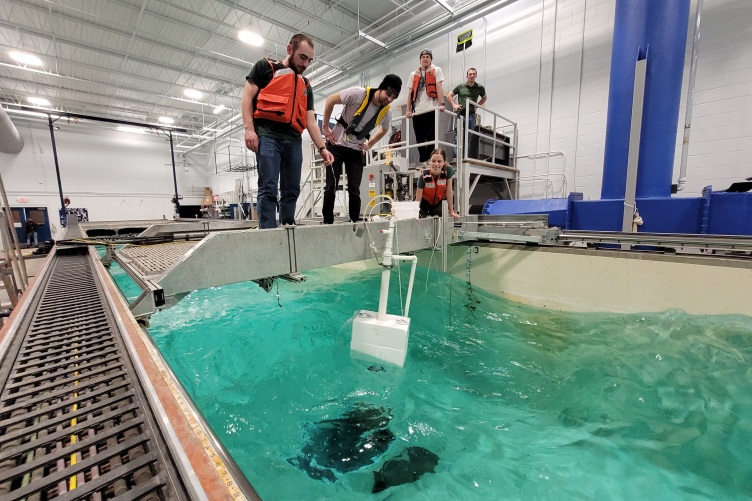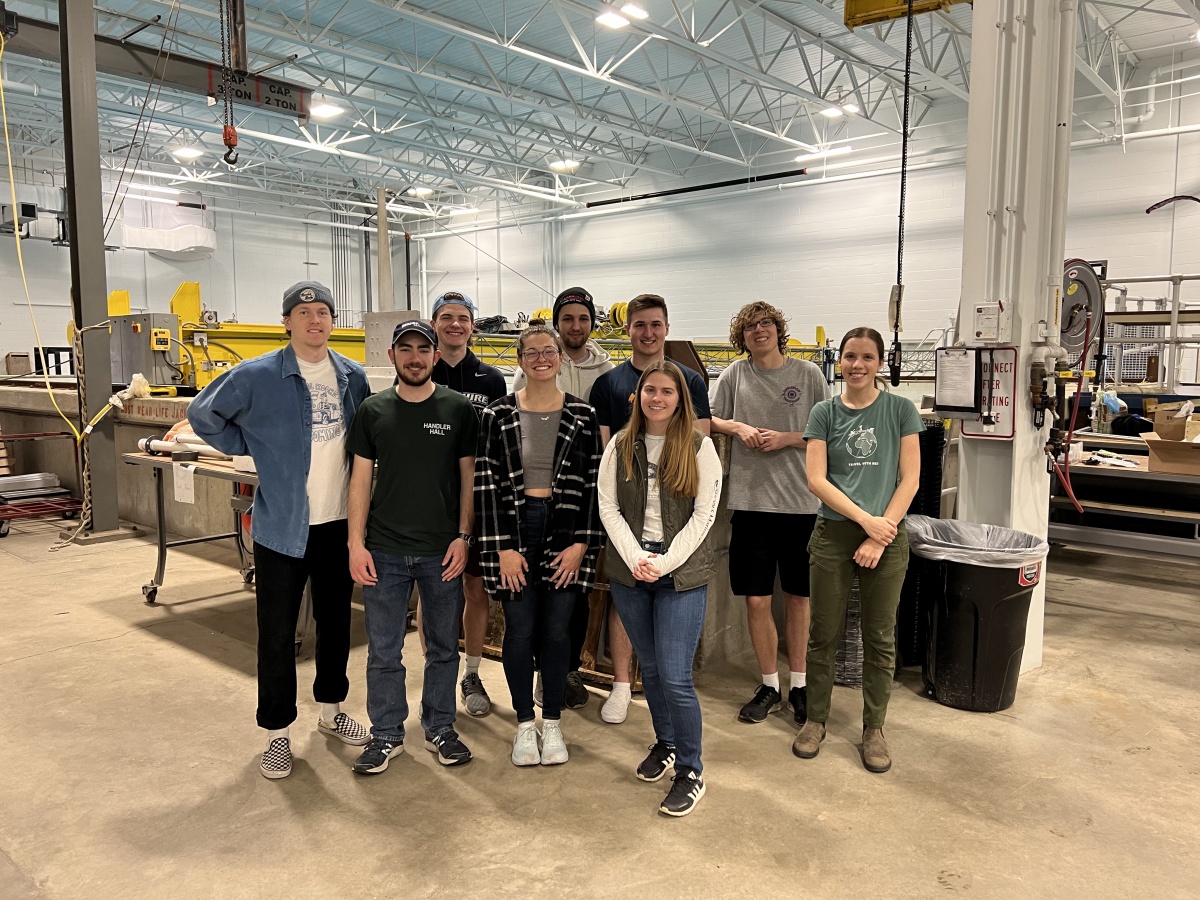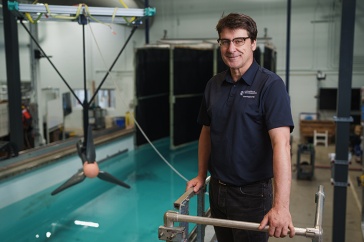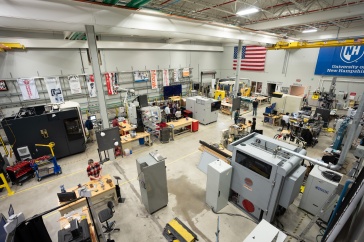
The student team designed, built and tested a 1:8 scale model of their winning UNH Coastal Wave-Powered Reverse Osmosis System in the UNH wave tank.
A system that generates fresh water from the ocean — powered by the ocean —propelled an interdisciplinary team of UNH students to third place in the national Marine Energy Collegiate Competition (MECC) hosted by the U.S. Department of Energy and the National Renewable Energy Laboratory. The team of nine engineering and business students, advised by professor of mechanical and ocean engineering Martin Wosnik and professor of civil and environmental engineering Erin Bell, competed among 17 teams from across the nation.
The MECC calls on multidisciplinary teams of undergraduate and graduate students to propose new ideas for marine energy to capture the power of the ocean. Marine energy has the potential to provide clean energy to remote and island communities and for blue economy applications such as ocean observation technology or desalination systems.

Joseph Camobreco ’22 (mechanical engineering) and Tori Sweet ’22 (environmental engineering) co-led the team. Additional members were Sam Williams ’22 (environmental engineering), Alexander Charest ’22 (mechanical engineering), Andrew LePage ’22 (ocean engineering), Devan Sack ’22 (civil engineering), Meaghan Wiggin ’22 (civil engineering), Chelsea Kimball ’18, ’23G (mechanical engineering) and Brendan Reagan ’24 (business).
“The students did a great job connecting across their disciplines and coming up with innovative solutions to difficult, real-world problems,” says Bell. “They had a lot of enthusiasm; we just pointed them in the right direction and let them go.”
“The students did a great job connecting across their disciplines and coming up with innovative solutions to difficult, real-world problems.”
Their winning project, the UNH Coastal Wave-Powered Reverse Osmosis System, aimed to produce fresh water for remote island and coastal communities with limited access to energy or fresh water. The inexpensive, easy-to-install design tapped the power of ocean waves to drive a hydraulic piston that pressurizes water and filters it through a reverse osmosis membrane.
The team wrote a 30-page techno-economic report and presented to an expert panel of judges recruited from marine energy industry professionals. The competition also included a poster presentation session and social events. The students analyzed market feasibility, outlined a research and product development plan, assessed risk — environmental, technical and societal — and conducted a detailed financial analysis for their product.
Shoals Marine Laboratory on Appledore Island served as a local case study for the feasibility of the project; other communities that could benefit include the Marshall Islands, Mauritius and other islands in the Gulf of Maine.
“The MECC is a great opportunity for students to get some real experience in marine energy,” says Wosnik, who also leads the new Department of Energy-funded Atlantic Marine Energy Center. “The MECC organizers are doing a great job connecting students to industry experts and providing relevant seminars and educational experiences throughout.”
-
Written By:
Beth Potier | UNH Marketing | beth.potier@unh.edu | 2-1566



















































